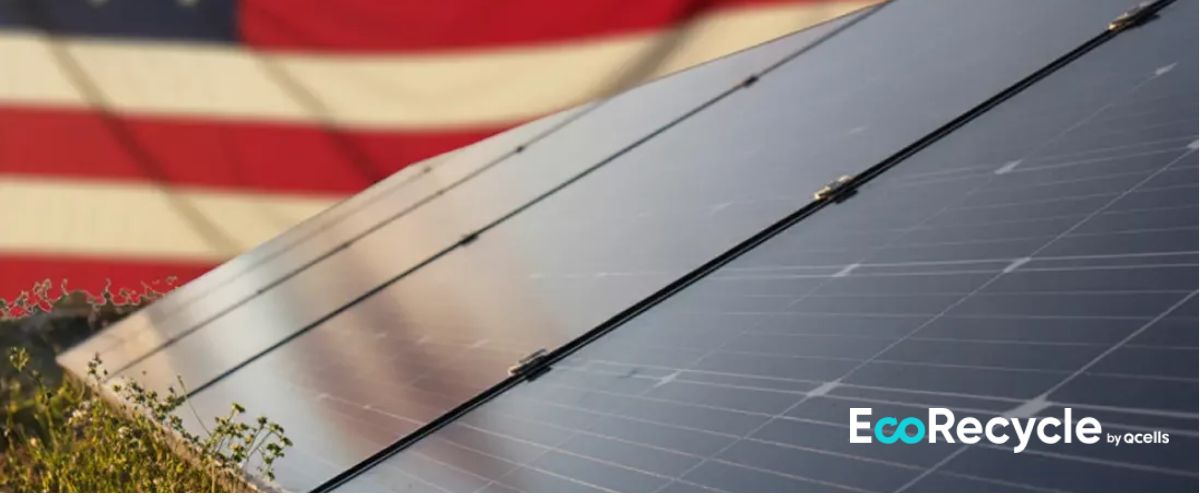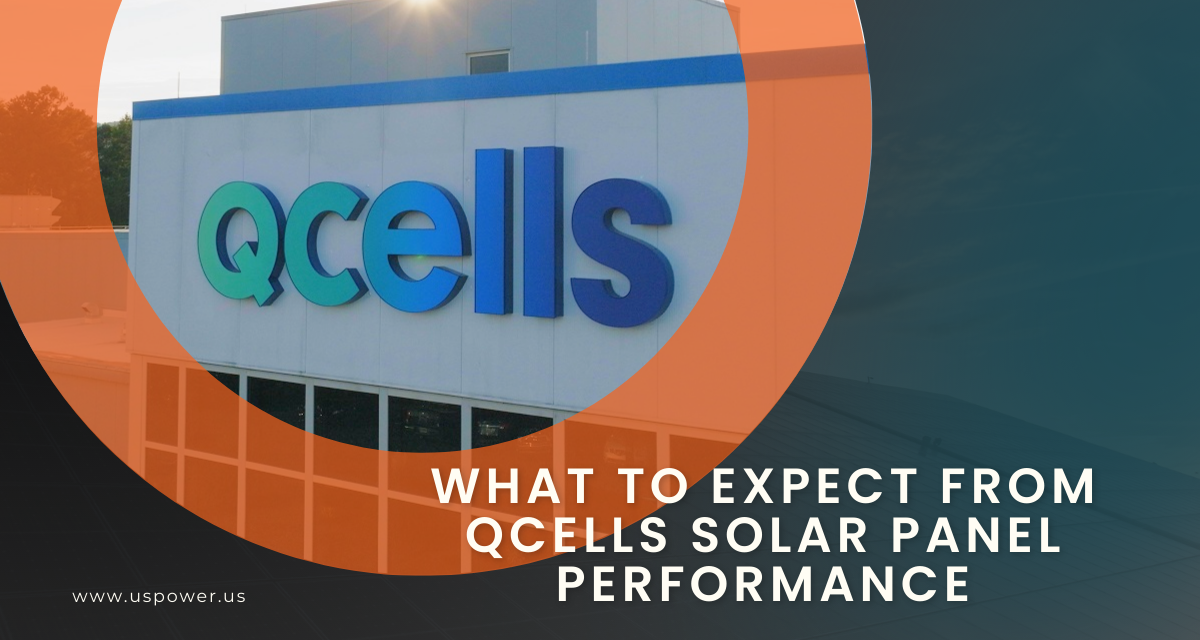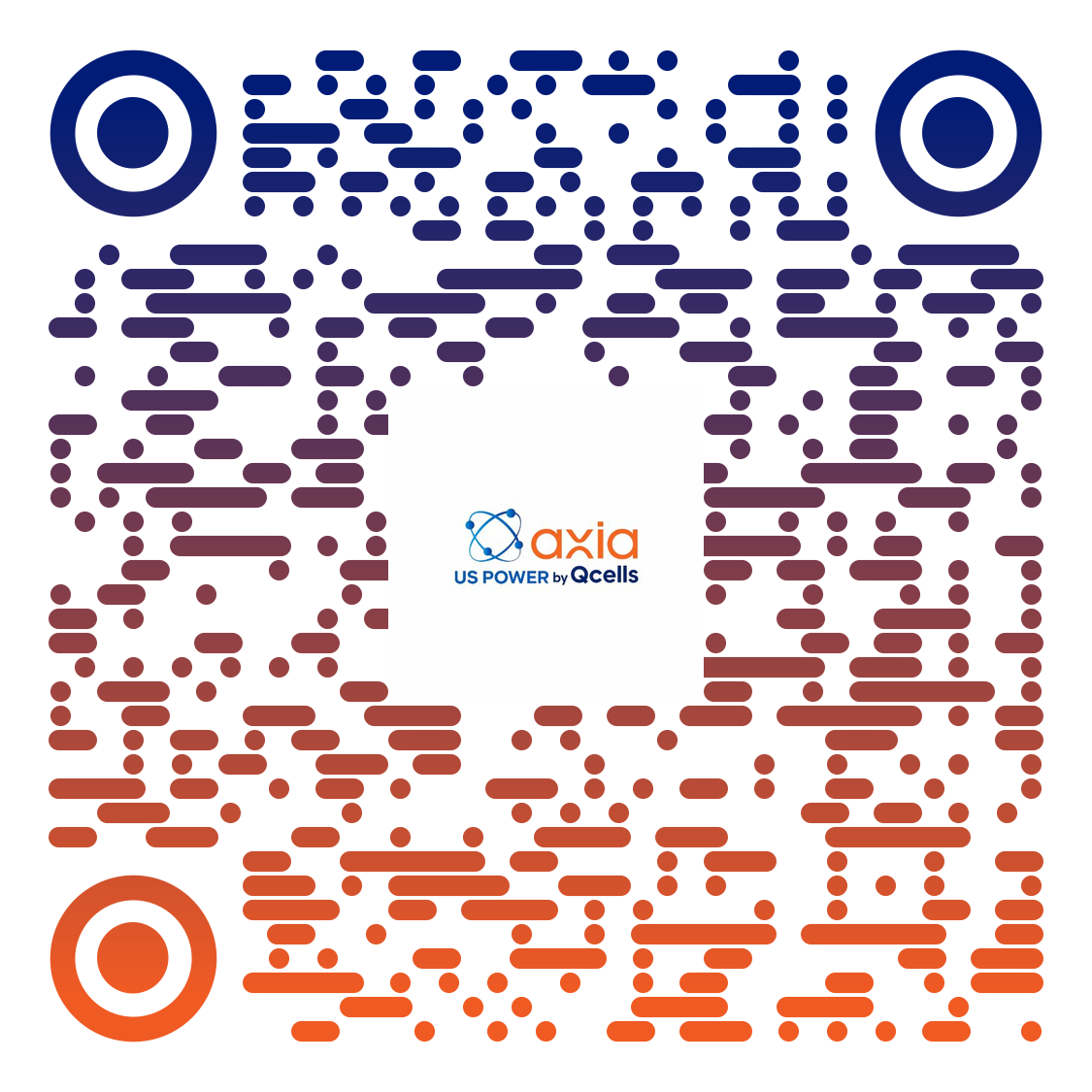Qcells Grows Manufacturing & Recycling via EcoRecycle Expansion

Solar and Roofing Advisor
Qcells’ new arm EcoRecycle marks its entry into solar recycling—reinforcing the sustainable supply chain for clean energy.

In a major move for the solar industry, Qcells has announced the establishment of its new business arm EcoRecycle by Qcells, signaling a strategic shift toward integrated manufacturing and recycling operations. This development not only strengthens Qcells’ footprint in sustainable energy, but also reinforces its unique position as the first-ever crystalline silicon (C-Si) solar panel producer to embark on circular solar operations at scale.
By launching EcoRecycle, Qcells is responding directly to a growing global imperative: what to do when millions of solar panels retire after 25–30 years in service. Rather than leaving decommissioned modules to languish in landfills, Qcells is now entering the upstream side of the waste chain — reclaiming materials, reducing reliance on virgin resources, and elevating the solar value chain.
This article dives deep into EcoRecycle’s implications, backed by up-to-date 2025 data, global context, and industry insights — demonstrating how this move positions Qcells as not just a solar manufacturer, but a steward of the circular energy economy.
The Global Solar Waste Challenge: Why Recycling Matters
A looming flood of end-of-life panels
Solar power has grown exponentially over the last two decades. But that growth comes with a critical byproduct: solar panel waste. According to IRENA and the IEA, global PV panel waste could reach 78 million metric tonnes by 2050. That amount of waste, if unmanaged, would challenge conventional waste systems worldwide.
Currently, only a small fraction of decommissioned panels are recycled. Studies estimate the global recycling rate of PV modules hovers between 5% and 10% in many markets today. In the U.S., that figure may be slightly higher for crystalline silicon modules, but still well below what the solar industry needs to confront the growing waste wave.
The value hidden inside old modules
Solar modules aren’t worthless at end-of-life — far from it. A standard silicon-based panel may contain around $15 worth of recoverable materials (glass, aluminum, silicon, silver, copper). Extracting and reusing these materials can reduce the pressure on mining, cut carbon emissions, and improve supply chain resilience.
Further, according to IEA’s roadmap, systematic recycling could satisfy up to 20% of global demand for aluminum, copper, glass, and silicon, and nearly 70% of silver demand in the solar industry — if recycling were scaled.
Economic and ecological costs
Recycling a panel is neither free nor trivial. In many U.S. operations, recycling of crystalline silicon modules costs $8 to $30 per module, depending on transportation, location, and technology. In contrast, landfilling remains much cheaper in many regions (sometimes $0.50 to $1.80 per module) — making the business case for recycling harder without regulatory incentives.
Globally, the solar panel recycling market itself is growing rapidly. In 2024, it was valued around USD 322.9 million and is projected to reach USD 548.0 million by 2030, growing at a CAGR of 7.4%. Other forecasts are more aggressive: MarketsandMarkets projects growth from USD 0.39 billion in 2024 to USD 1.12 billion by 2030 (CAGR 19.5%). Regardless of the precise model, the key point is clear: recycling is a rising global opportunity and necessity.
Meanwhile, the International Energy Agency (IEA) reports that some recyclers already recover over 80% of module materials — glass, metals, and certain semiconductors — but those are exceptions in a still nascent sector.
The bottom line: with millions of solar panels reaching end-of-life in coming decades, recycling must transition from niche to mainstream — and manufacturers must lead.
Qcells’ Strategic Leap: EcoRecycle by Qcells
What is EcoRecycle?
Qcells’ new business arm, EcoRecycle by Qcells, represents the company’s formal entry into solar panel recycling. It is designed to integrate recycling operations with existing manufacturing — specifically at Qcells’ Georgia campus in Cartersville, adjacent to its U.S. production facilities.
By locating recycling close to manufacturing, Qcells aims to optimize logistics, reduce transport emissions, and close the loop in its supply chain — turning “waste” into feedstock for new panels.
Scale & capacity
Reports indicate that EcoRecycle’s facility may handle on the order of 250 MW worth of decommissioned panels (roughly 500,000 panels, depending on capacity assumptions) in an initial phase.
In media coverage, Qcells is described as the first U.S. solar manufacturer to both produce and recycle panels at a shared site.
The new recycling operation will recover aluminum, glass, silver, copper, and other core materials.
- Supply chain resilience: By reclaiming materials internally, Qcells reduces dependence on raw-material markets, which are vulnerable to geopolitical tensions, supply constraints, and price volatility.
- Sustainability branding & compliance: The integrated model aligns with circular economy goals and can support compliance with emerging global extended producer responsibility (EPR) regimes.
- Cost optimization: Over time, recycling internal materials can offset raw-material costs and reduce waste-handling expenses.
- Market differentiation: Qcells is setting itself apart — not just as a panel manufacturer, but as a lifecycle steward.
Qcells as First-Ever Crystalline Silicon (C-Si) Solar Panel Producer
To fully appreciate the significance of EcoRecycle, it helps to revisit Qcells’ roots and innovation credentials. Qcells is recognized globally as a leading crystalline silicon (C-Si) solar panel manufacturer — and in many respects, a pioneer in pushing performance and scale.
While many solar firms specialize in design, engineering, or marketing, Qcells has invested heavily in manufacturing capabilities, proprietary cell technologies (Q.ANTUM, Q.Peak, Q.ANTUM DUO), and product reliability. Qcells is often cited among the top-tier global PV brands for durability, efficiency, and long-term performance.
By pairing that manufacturing strength with a recycling division, Qcells effectively becomes one of the first integrated circular C-Si solar enterprises: producing, deploying, and eventually reclaiming.
That full-lifecycle positioning strengthens Qcells’ leadership, especially as solar markets increasingly demand sustainable credentials and circular supply chains.
Global Implications & Competitive Dynamics
Circular economy alignment
EcoRecycle aligns Qcells squarely with circular economy ideals — turning waste into resources, reducing new material demand, and minimizing environmental footprints. As governments worldwide roll out stricter EPR laws, EcoRecycle positions Qcells to respond proactively rather than reactively.
Pressure on industry peers
Competitors in the solar manufacturing space may now face pressure to adopt similar strategies. The move raises industry expectations: manufacturing alone is no longer enough; sustainability through recycling is the next frontier.
Regulatory tailwinds
Countries are increasingly legislating solar-panel disposal and recycling. The European Union, for example, enforces PV waste collection and recycling targets under WEEE (Waste Electrical and Electronic Equipment) directives.
Meanwhile, the U.S. Inflation Reduction Act (IRA) and Bipartisan Infrastructure Law include funding for recycling infrastructure, acknowledging the importance of clean-energy circularity.
This means manufacturers that build recycling into their model may gain competitive advantages — in compliance, cost, public perception, and brand trust.
Technical & Economic Challenges
Difficulty in de-lamination and material separation
Solar panels are ruggedly engineered for decades — layers of glass, encapsulant, silicon cells, metal contacts, plastics, and backsheets are tightly bonded. Separating these without damaging components is nontrivial.
Some recyclers achieve over 80% recovery rates, but that is not yet the norm.
High cost vs. low recycling rates
Because recycling is still expensive, it often loses economically to landfills. Many decommissioned modules are simply discarded or shredded without full recovery.
Infrastructure and scale limitations
Globally, existing PV recycling capacity is still limited. A 2025 report suggests U.S. PV module recycling is around 10–12% of potential volume for crystalline silicon modules.
Additionally, many states and nations lack clear solar-waste regulation, making participation patchy.
Transportation and logistics
Transporting bulky, low-value decommissioned modules to recycling centers can tip the cost balance. Building recycling adjacent to manufacturing (as Qcells is doing) helps mitigate that cost.
Market risk & fluctuating commodity values
The recovered metals (silver, copper, aluminum) may or may not fetch high prices over time, depending on market supply, demand, and raw material cycles.
Why EcoRecycle by Qcells Could Succeed
Despite challenges, EcoRecycle has structural advantages that improve its odds:
- Vertical integration
By co-locating recycling with manufacturing, Qcells shortens logistics and material flow cycles. - Brand and trust leverage
Qcells’ reputation in PV quality, warranties, and durability gives it credibility in making circular claims. - First-mover advantage
As one of the earliest major manufacturers to invest in integrated recycling, Qcells may capture market share, partnerships, and policy leadership. - Regulatory alignment
With looming solar disposal law changes globally, Qcells is positioning itself ahead of the curve rather than scrambling to comply later. - Raw material hedge
Recycling yields internal feedstock (glass, silicon, aluminum, copper) that buffers external supply risks.
If executed well, EcoRecycle could become a template for a new class of solar manufacturers — ones that don’t just build panels, but reclaim and regenerate materials.
What This Means for Solar Stakeholders (2025 and Beyond)
For solar buyers & developers
Customers and developers increasingly prefer suppliers with sustainability credentials. A manufacturer that recycles its own modules helps reduce environmental risk, strengthens warranty integrity, and reinforces the lifespan value of a PV system.
For recycling companies
EcoRecycle may raise the bar — partnerships may evolve, consolidation may occur, and competition in recycling tech (mechanical, thermal, chemical, laser) will intensify.
For regulators & policymakers
EcoRecycle demonstrates a scalable model for compliance with circular economy and EPR enactments. Policymakers may look to it as a benchmark or even a requirement for future solar subsidies or incentives.
For the global carbon transition
If more solar firms adopt integrated recycling, the carbon burden of new panel production falls. Recycled materials require less energy and generate lower emissions than virgin extraction and processing.
How This Moves Qcells Toward a Circular Future
- Closing the loop
Qcells’ products will eventually feed into its recycling operations, creating a virtuous material loop. - Better analytics & reliability
Access to retired modules helps Qcells analyze real-world aging, failure modes, and performance degradation — feeding insights into design and warranty improvement. - Ecosystem development
EcoRecycle may catalyze local recycling supply chains, training programs, and partnerships — amplifying circular growth. - Sustainability differentiation
Qcells can market not just as a panel supplier, but as a sustainability-first brand. That is increasingly valuable to governments, enterprises, and consumers.
Caveats & Success Factors to Watch
- Operational rollout risk — early operational missteps, cost overruns, or low yield issues could jeopardize returns.
- Market acceptance — developers and panel buyers must value recycling credentials sufficiently to reward Qcells with market share.
- Commodity cycles — if silver or copper prices crash, the economics tightens.
- Regulation synchronization — global solar recycling gains momentum only if laws and incentives encourage it widely. Qcells will need to navigate diverse regulations across jurisdictions.
- Scaling — will EcoRecycle remain a niche outlet or scale to support global decommissioning volumes?
The Solar Energy's Future
Qcells’ launch of EcoRecycle by Qcells marks a defining moment in the solar industry. By combining its strengths in crystalline silicon manufacturing with a new recycling capability, Qcells is not just expanding its footprint — it’s redefining the entire solar value chain.
In a world increasingly attuned to circular economy dynamics, this move sets a new standard: the manufacturer that builds must also responsibly reclaim. For solar to truly be a zero- or low-waste technology, integrated recycling is essential, not optional. EcoRecycle is a powerful step in that direction.
If you’re a homeowner or business in Southern California seeking high-performance solar with sustainability credentials, we invite you to explore systems built with Qcells technology. As a local installer partner, US Power is among the few in the region offering factory-direct pricing on Qcells panels — now backed by one of the industry’s most forward-looking circular strategies.
Ready to go solar? Contact US Power today to lock in exclusive Qcells pricing and join the next wave of sustainable solar adoption.
Frequently Asked Questions
Artículos relacionados
Nuestros blogs relacionados
What to Expect from Qcells Solar Panel Performance
Get the real performance & realistic savings with Qcells panels in California.
The Truth About Flat Roof Solar in California: Savings vs. Challenges
Flat-roof solar cuts upfront costs and delivers up to $45k in lifetime savings.
Por qué Qcells es la opción solar doméstica más inteligente en 2025
See why Qcells panels are the smartest choice for California home solar in 2025.








Empoderamos a las comunidades y las empresas para que aprovechen las energías limpias y renovables energía solar soluciones que impulsan el crecimiento sostenible.
Derechos de autor © 2025 US POWER | Energía solar y techosUS Power - Axia by QCells. All Rights Reserved.
La privacidad es importante para nosotros, por lo que tiene la opción de deshabilitar ciertos tipos de almacenamiento que pueden no ser necesarios para el funcionamiento básico del sitio web. El bloqueo de categorías puede afectar a su experiencia en el sitio web.
Imprescindible
Estos elementos son necesarios para habilitar la funcionalidad básica del sitio web.
Personalización
Estos elementos permiten que el sitio web recuerde las elecciones que ha realizado (como el nombre de usuario, el idioma o la región en la que se encuentra) y proporcionan funciones mejoradas y más personales.
Mercadeo
Estos artículos se utilizan para ofrecer publicidad que sea más relevante para usted y sus intereses.
Analítica
Estos elementos ayudan al operador del sitio web a comprender cómo funciona su sitio web, cómo interactúan los visitantes con el sitio y si puede haber problemas técnicos.
Nosotros y nuestros socios externos utilizamos cookies y otras tecnologías para mejorar y rastrear su experiencia en este sitio, realizar análisis y personalizar el marketing para usted. Al usar el sitio, aceptas que usemos estas tecnologías, incluido el registro y el monitoreo de tus interacciones con el sitio.
¡Obtenga una estimación solar instantánea usando el satélite!










